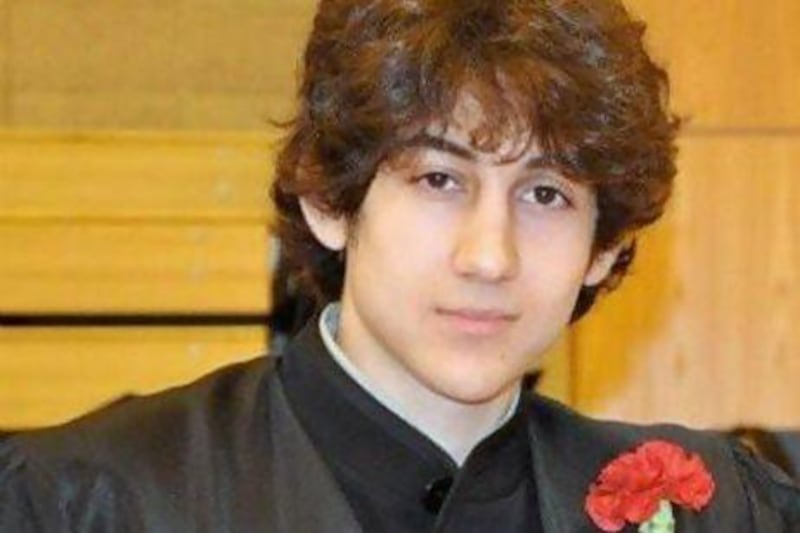Most people looking at the scrawny American boy accused of carrying out the Boston bombings will find it hard to disagree with a New York state senator's rhetorical tweet: "Who wouldn't use torture on this punk?"
Such a statement reflects what millions around the world must have thought on seeing the blurry images of Dzhokhar Tsarnaev emerging from his hiding place: if it were possible to learn anything useful from him that would prevent other attacks, it's worth finding it out, by any means.
But conventional "wisdom" does not make good policy and one of the reasons for the rule of law is to prevent the rule of the mob.
The current debate in the United States over whether to read Mr Tsarnaev his Miranda rights - informing him of his right to remain silent and that anything he says after would be admissible in a court of law - before questioning him may seem trivial, like legal arcana. Mr Tsarnaev will be read his rights eventually, and so what if the FBI asks him some questions before that happens?
But it is in that small legal space that untold horrors can be found.
The trouble is that every situation is unique in some respect; every threat is unprecedented; every attack singular. If the US starts by making an exception in one case, it will end up making exceptions in every case.
That's precisely the trajectory that the American legal system has travelled since September 11, 2001. Again and again in the years since September 11, the US has sought to bend established law and established principles for brief tactical gain.
The end result is well-known: Guantanamo Bay (a place Amnesty International has described as "the gulag of our times"); the black prisons around the world, beyond the reach of the law; the outsourcing of torture; Iraq and the privatisation of conflict and all the horrors that followed that breaking of international law.
Again and again as the misnamed war on terror has been prosecuted, novel situations have arisen, and again and again the military and right-wing politicians have argued that they required new legal powers to deal with these threats.
In many cases, as in Iraq, Afghanistan and Pakistan, these violations have occurred far from the watching world, where the civilians killed and the suspects tortured were poor foreigners without a voice.
But even in the United States, Americans have come to accept situations that would have been unthinkable barely a few years ago, like the routine and intrusive surveillance of individuals and communities and detention without trial or even judicial review. Even - most shockingly and still shrouded in legal ambiguity and political secrecy - the ability to execute US citizens without charging them with any crime or affording them the opportunity to respond.
That is what happened in September 2011, when the CIA, acting on President Barack Obama's orders, killed two US citizens with drone strikes, without ever charging them with any crime. That the two citizens had non-western names (Anwar Al Awlaki and Samir Khan) does not change the fact they were entitled to the protections of their government.
With regard to Mr Tsarnev and his Miranda rights, Emily Bazelon, writing in the US magazine Slate, points out how a small "public safety" exception (from a 1984 case where the police asked a suspect with an empty holster where his gun was, before reading him his rights) has been stretched in at least two cases since September 11 to interrogate terrorism suspects. It is that same exception that is being used for Mr Tsarnaev, the one-time exception now regularly invoked.
Across the Middle East, we have seen again and again how small exceptions to the rule of law become the norm.
After the assassination of Anwar Sadat in Egypt in 1981, the new president, Hosni Mubarak, instituted a state of emergency, ostensibly to root out any remaining threats within the army and the country. The state of emergency never ended while he was president: every three years, legislators would find reasons to renew it.
Similarly in Israel, the army instituted martial law in the Palestinian territories it occupied in 1967 - and never rescinded the law (or returned the territories for that matter). From that day to this, the West Bank and its millions of individuals live under Israeli law, subject to checkpoints, arbitrary arrest and imprisonment without trial.
There are plenty who will look at Mr Tsarnaev, shrug and say, "So what?" If this kid can bring himself to murder his fellow citizens, then he deserves whatever is coming to him.
But liberals need to fight against this mentality. The protections of the law are vital for developed societies and it is vital that they apply to everyone.
Mr Tsarnaev is a gawky kid with an unusual name whose family comes from a barely-known part of the world. He is a classic outsider. But he is a US citizen. And if the laws of the United States can be bent for him, they can, and in time will be bent for others. Laws cannot easily be bent without breaking them entirely.
On Twitter: @FaisalAlYafai






